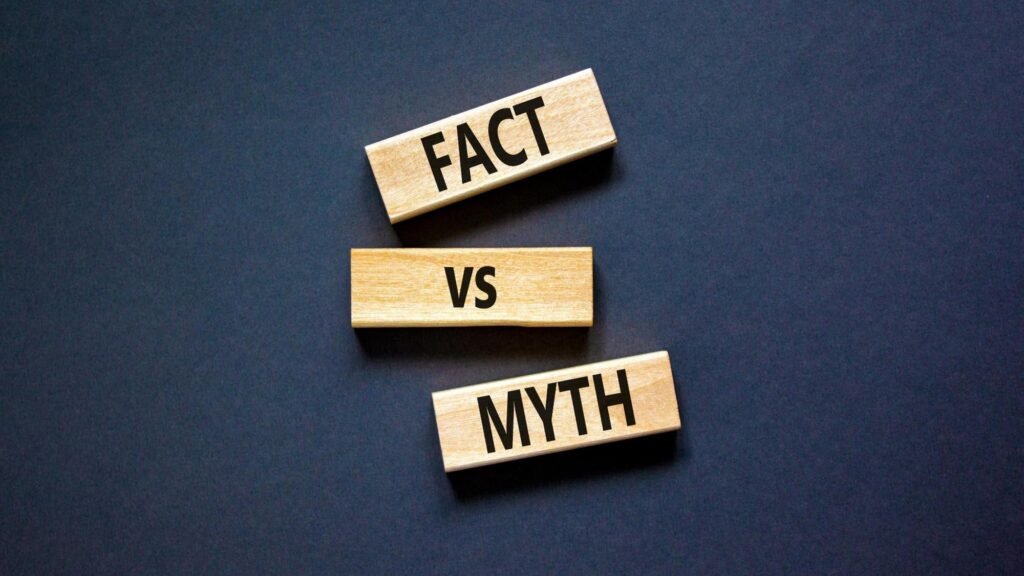Lately, intermittent fasting has become a huge hit, grabbing the attention of those keen on fitness and folks mindful about their health. This eating plan, which switches up times of fasting with periods when you can eat, is gaining buzz for being a game-changer in dropping pounds, boosting health metrics, and even potentially adding years to your life. Intermittent fasting catches our eye, not just because it might help us drop a few pounds. The real magic happens when we see how it tunes up the body’s natural rhythms, offering benefits that ripple out way beyond simple weight control.
Yet, with all the excitement about intermittent fasting floating around, it’s become tough to tell fact from fiction. A bunch of myths have popped up, making it confusing for anyone trying to dive into this lifestyle. From the notion that fasting inevitably leads to muscle loss to the belief that it’s a one-size-fits-all solution, these myths can lead individuals astray and hinder their progress. In this post, we’re going to sort through the clutter of intermittent fasting advice. We’ll distinguish between what’s true and what’s not by closely examining the most popular myths out there. Learning the facts and busting myths helps us make choices that truly benefit our health. When we do this, we’re in a better position to tap into the amazing benefits intermittent fasting has to offer for our overall well-being.
Table of Contents

Myth #1: Intermittent Fasting Leads to Muscle Loss
One of the most pervasive intermittent fasting misconceptions is the belief that fasting inevitably leads to muscle loss. The mere thought of going hours without food can conjure up images of a catabolic state, where hard-earned muscles waste away. But when you dig into the science, a whole different story comes to life.
Numerous studies have demonstrated that intermittent fasting, when combined with adequate protein intake and resistance training, can actually preserve lean body mass. Picking the right times to eat and filling your plate with nutrient-packed foods during those moments can not only keep your muscles strong but even help them grow. Plus, you’ll still enjoy all the perks that come with intermittent fasting.
Key Takeaways:
- Intermittent fasting does not inherently cause muscle loss.
- Eating enough protein and sticking to resistance training are key if you want to keep your muscle mass while on intermittent fasting.
Myth #2: Intermittent Fasting Slows Down Metabolism
Another common intermittent fasting myth is the notion that fasting slows down your metabolism, making it harder to lose weight in the long run. A lot of folks think that eating often keeps your metabolism in high gear, and if you go too long without a snack, it’ll just slow right down. But here’s a little nugget of wisdom from the research world: it turns out, dabbling in intermittent fasting might not actually slow down your metabolism much at all. Actually, there are some studies out there hinting that skipping meals every now and then could do more than just help you drop a few pounds. It might also kick your metabolism into high gear by making your body better at handling insulin and turning fat into energy.
Key Takeaways:
- Intermittent fasting does not significantly slow down metabolism.
- Studies are showing that taking breaks from eating—intermittent fasting, as it’s known—might just give your metabolism a boost. It could even help with how well your body manages insulin levels.

Intermittent Fasting Myths vs. Facts
Myth #3: Intermittent Fasting Causes Nutrient Deficiencies
One of the concerns surrounding intermittent fasting is the fear of nutrient deficiencies. Some believe that by limiting your eating window, you may not consume enough essential vitamins and minerals. But, if you think that’s the whole story, let me set things straight – a well-rounded diet when you do eat is what really flips the script. If you fill your plate with the good stuff—think colorful fruits and veggies, hearty whole grains, lean meats for protein, and fats that are good for your heart—you’re setting yourself up to get all those essential nutrients. And yes, this can totally fit into a smaller eating window!
Myth #4: Intermittent Fasting Is Not Sustainable Long-Term
Skeptics often argue that intermittent fasting is a short-term fad, lacking sustainability for long-term adherence. However, this couldn’t be further from the truth. A lot of folks have found that sticking with intermittent fasting isn’t just a temporary fix but a long-term key to staying healthy and feeling great. Really, it all boils down to finding a fasting plan that fits snugly with how you live, what you like, and what you’re aiming for. Whether it’s the 16/8 method, the 5:2 diet, or alternate-day fasting, there are various strategies to make intermittent fasting a sustainable habit. Paying attention to what your body is telling you, staying nimble with your plans, and tweaking things here and there means intermittent fasting can smoothly become part of your everyday life.
Myth #5: Intermittent Fasting Is Only for Weight Loss
While weight loss is often a primary motivation for adopting intermittent fasting, it’s far from the only benefit. Reducing intermittent fasting to a mere weight loss tool is a disservice to its multifaceted potential. Studies have shown that taking breaks from eating every now and then, known as intermittent fasting, comes with a bunch of health perks. These include making your body more responsive to insulin, dialing down inflammation, and even giving your brain a boost. If you’re just watching the scale, you might miss out on how intermittent fasting really boosts your health and mood.
Key Takeaways:
- Balanced nutrition during eating windows can prevent nutrient deficiencies.
- Intermittent fasting can be a sustainable long-term lifestyle with the right strategies and flexibility.
- Skipping meals now and then does more than just help you drop a few pounds. It also ramps up your insulin sensitivity, dials down inflammation, and gives your brainpower a serious boost.

Myth #6: Intermittent Fasting Is Dangerous for Women
A prevalent intermittent fasting myth suggests that fasting is particularly dangerous for women, disrupting hormonal balance and leading to adverse effects. While women’s bodies do respond differently to fasting compared to men’s, this doesn’t mean that intermittent fasting is inherently harmful. Figuring out what women need and making the right tweaks is where it’s at. Ladies might want to pay a bit more attention to how long they’re fasting, making sure to tune into what their bodies are telling them and tweaking their routine if needed. By working with a healthcare professional and monitoring their individual response, women can safely and effectively incorporate intermittent fasting into their lives.
Key Takeaways:
- Intermittent fasting is not inherently dangerous for women.
- Ladies, it’s super important to listen to what your body is telling you and adjust your fasting routine accordingly.
Myth #7: Intermittent Fasting Leads to Overeating During Eating Windows
A common concern surrounding intermittent fasting is the fear of overeating during eating windows, negating the potential benefits. But really, we can knock that myth down a peg or two just by focusing on eating with awareness and keeping an eye on our portion sizes. Choosing foods packed with nutrients that fill you up and being mindful of how and when you eat can help dodge the common trap of overeating. Strategies such as planning meals in advance, eating slowly, and listening to hunger and fullness cues can help you maintain a balanced approach to food during your eating periods.
Key Takeaways:
- Mindful eating and portion control can prevent overeating during eating windows.
- Packing your diet with foods rich in nutrients and being mindful of how you eat can really set the stage for success.
Myth #8: Intermittent Fasting Requires Skipping Breakfast
One of the most persistent intermittent fasting myths is the belief that fasting necessitates skipping breakfast. However, this is far from the truth. Intermittent fasting lets you play around with when you eat, making it easy to shape your eating schedule in a way that fits just right with how you live and what you like. While some may opt for a later eating window, skipping breakfast is not a requirement. One of the best parts about intermittent fasting is how flexible it is. You can pick from several plans like the 16/8 method, dive into something like the 5:2 diet, or even try out alternate-day fasting to see what fits your lifestyle best. At the end of the day, what really matters is finding a fasting plan that clicks with your lifestyle, whether it includes munching on breakfast or skipping it altogether.
Key Takeaways:
- Intermittent fasting does not require skipping breakfast.
- Flexibility in choosing eating windows allows for personalization based on individual preferences and lifestyles.
Myth #9: Intermittent Fasting Is a Quick Fix for Weight Loss
In our fast-paced society, the allure of quick fixes for weight loss is ever-present. However, portraying intermittent fasting as a magic bullet for rapid weight loss is a myth that needs to be debunked. While intermittent fasting can indeed facilitate weight loss, it’s not a miraculous solution that overrides the fundamental principles of a balanced, nutritious diet and consistent effort. Dropping pounds and keeping them off with intermittent fasting isn’t a sprint; it’s more of a marathon. You’ll need to buckle down, stay patient, and embrace a well-rounded approach to staying healthy. Mix up intermittent fasting with eating lots of nutritious foods and keeping your goals in check, and you’re on a solid path to not just seeing a different number when you step on the scale, but feeling genuinely healthier all around.

Conclusion
In the world of staying healthy and feeling your best, intermittent fasting has really taken off as a standout choice for folks looking to give their wellness routine an edge. However, the landscape of intermittent fasting is not immune to myths and misconceptions that can lead individuals astray. So, by busting some popular myths about intermittent fasting and telling the real story from the tall tales, we give ourselves a power-up in making smart choices about what we eat.
We’ve dug into some common myths about intermittent fasting in this post, busting the big ones like the fear of losing muscle and addressing concerns that it’s not a one-size-fits-all deal. Digging through all the science and practical tips, we’ve really gotten to the heart of intermittent fasting and how it could seriously change lives for the better.
Diving into intermittent fasting means we should really focus on finding solid, research-backed info and chatting with our healthcare experts to make sure we’re doing it safely and effectively. Diving into intermittent fasting with a plan that fits just right for you and leans on sustainability can really open the door to an amazing array of health perks. Let’s step onto this path together, aiming for top-notch wellness all around.
Let’s kick those myths and wrong ideas about intermittent fasting to the curb and welcome the real deal with open arms. Knowing what we do and really looking out for our health, we’ve got the chance to make a big change with intermittent fasting. It’s all about taking it one fasting period at a time.




Pingback: The Power of Intermittent Fasting: A Comprehensive Guide - Counting Kilos
Your point of view caught my eye and was very interesting. Thanks. I have a question for you.
Thanks for sharing. I read many of your blog posts, cool, your blog is very good.